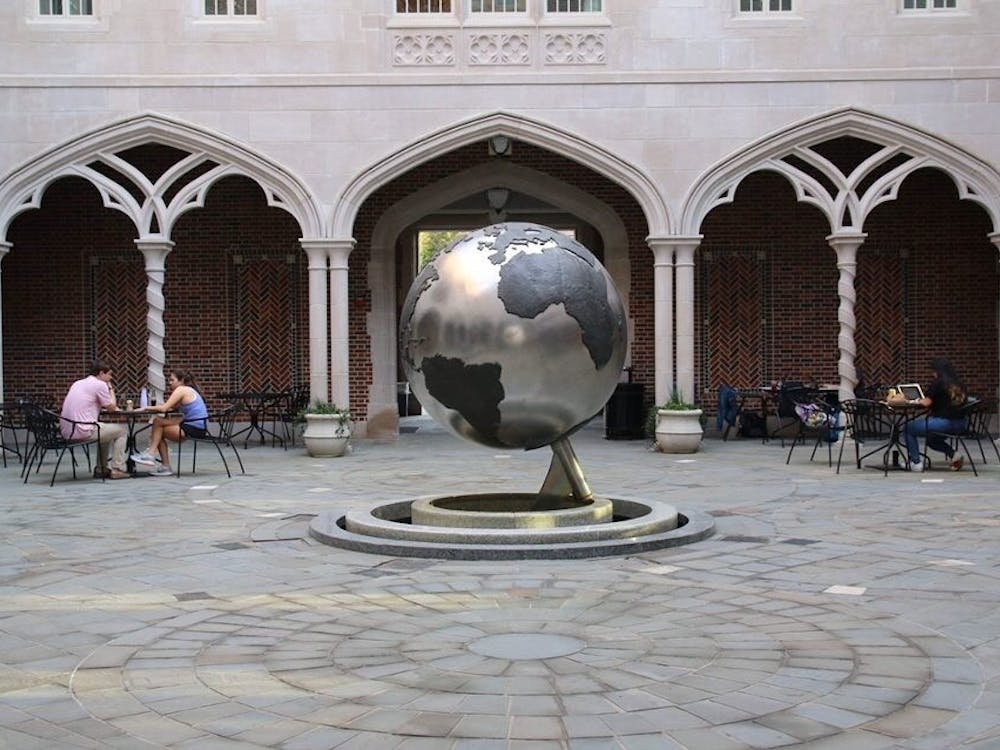Collegian Reporter
Most people can relate to being frustrated when they recognize someone's face, but can't remember his or her name.
"Are faces special?" is a question that has been studied and debated since 1955, said Cindy Bukach, assistant professor of psychology. Today, an ongoing debate continues among cognitive specialists, questioning whether there is a uniqueness about faces that makes them easy for all humans to identify.
Richmond alumnus Stewart Phillips helped design an experiment with Bukach to challenge theories about how the brain becomes specialized to recognize objects, including faces, by studying car experts. Bukach began working on this study before coming to Richmond in 2006. The study originally investigated the number and saliency of car features that contribute to car expertise. The research project, "Attention to Salient Features in Experts," studied whether all experts use the same features humans use in face recognition to identify objects of their expertise.
The first thing Phillips and Bukack sought to understand was how "normals," or non-experts, look at cars, Bukach said. A car novice identifies cars at very basic levels, not by individual models, she said.
Phillips helped design a computer-based study by manipulating photos of cars on Photoshop and compiling them into a program that would prompt novices to identify different parts of cars as they changed on the screen. They told novices which car parts to focus on as they changed. It didn't make sense to see which aspects of the car people paid attention to when they didn't know where to predict the changes, Bukach said.
For his senior research project, Phillips took the study a step further to demonstrate how antique and modern car experts differ in the ways they recognize different categories of cars. Phillips came up with a task for research participants that showed three parts of a car varying as they flashed on the screen one right after the next. It was a matching test in which some part of the cars changed. They made sure the window, wheel and bumper changes were equally difficult.
"We were interested in the experience you get as an expert; whether it changes the way you tend to the parts," Bukach said.
Phillips was surprised to see that modern and antique car experts were only truly experts for a specific class of cars. Their expertise did not extend to all cars, he said.
"We believe that if we were able to recruit more experts, we would show a difference in the features of the cars which experts focus on more and use to make judgments about the cars," Phillips said.
Stewart showed that you can't expect just any car to spark a car connoisseur's expertise, Bukach said. "There's a limit to expertise."
Enjoy what you're reading?
Signup for our newsletter
He presented his findings at the Arts and Sciences Student Symposium in 2007 and 2008, as well as the 2008 Object Perception, Attention, and Memory Conference in Long Beach, Calif.
The rationale behind the experiment is that the object recognition system has some neurological plasticity as we learn about objects. The system changes to reflect the expertise, Bukach said. For most objects we only recognize their variations at a basic level, not in a detailed manner.
"But with faces, that's different," Bukach said. "We've developed a perceptual expertise with faces."
Pretty much everybody is a face expert, she said. There's an ongoing debate in the world of psychology as to whether faces are special and whether we are born with an innate face recognition module that's its own system, she explained.
"Some people make this basic assumption that faces are special, and there's those other of us that believe faces can tell us about other types of object recognition," Bukach said.
Contact reporter Taylor Engelson at
href="mailto:taylor.engelson@richmond.edu">taylor.engelson@richmond.edu
Support independent student media
You can make a tax-deductible donation by clicking the button below, which takes you to our secure PayPal account. The page is set up to receive contributions in whatever amount you designate. We look forward to using the money we raise to further our mission of providing honest and accurate information to students, faculty, staff, alumni and others in the general public.
Donate Now


